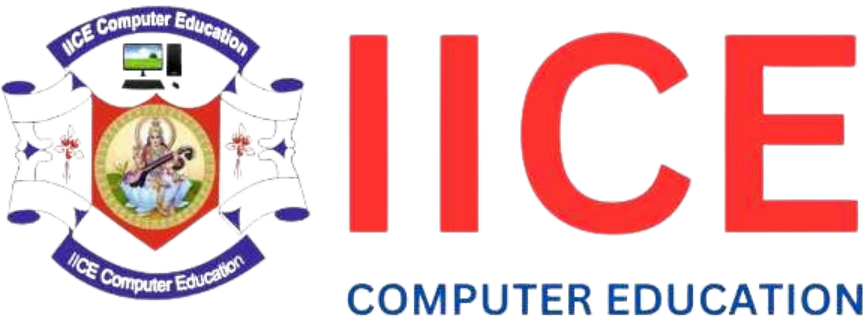
Banking and Finance
At IICE, the best computer institute in Shimla, we offer best Banking and Finance course that helps students with essential knowledge in financial management, banking operations, investment strategies, and financial markets. The course covers key topics such as banking regulations, risk management, financial analysis, and accounting principles. Students will gain best experience with financial tools and software, preparing them for roles in the banking sector, financial institutions, and investment firms. With a focus on both theoretical concepts and practical applications, this course provides students with the skills to grow in the world of banking and finance.

Overview of Banking and Finance and Career Opportunities
The Banking and Finance course provides students with a deep understanding of the financial systems, banking operations, and financial management practices essential for the functioning of financial markets and institutions. Students learn about key areas such as investment analysis, risk management, financial planning, corporate finance, and banking regulations. The course combines theoretical knowledge with practical skills, preparing students for roles in commercial banking, investment banking, corporate finance, and financial consulting. Career opportunities include roles such as Financial Analyst, Investment Banker, Risk Manager, Bank Manager, Financial Planner, and Credit Analyst, with strong prospects in both national and international financial institutions.

Banking and Finance syllabus
Introduction to Banking and Finance
- Overview of banking and finance
- Types of financial institutions: Commercial banks, investment banks, insurance companies, mutual funds
- Role of banking in the economy
- Functions of banks and financial intermediaries
Banking Operations and Management
- Fundamentals of banking operations
- Types of accounts and services offered by banks (savings, current, term deposits)
- Lending practices: Loans, overdrafts, mortgages
- Risk management in banking
Financial Markets and Instruments
- Overview of financial markets (money markets, capital markets, foreign exchange markets)
- Financial instruments: Stocks, bonds, derivatives, mutual funds
- Securities markets: Primary and secondary markets
- Trading and investment strategies
Investment Analysis and Portfolio Management
- Types of investments: Equities, bonds, real estate, commodities
- Risk and return analysis
- Portfolio diversification and asset allocation
- Modern Portfolio Theory (MPT)
- Investment analysis tools (technical and fundamental analysis)
Corporate Finance and Financial Management
- Principles of corporate finance
- Capital structure and financing decisions
- Cost of capital and capital budgeting techniques
- Financial statement analysis and interpretation
Financial Planning and Personal Finance
- Introduction to personal finance and financial planning
- Budgeting, savings, and investments for individuals
- Retirement planning and estate management
- Tax planning and insurance product
About Banking and Finance Course
Banking and finance have evolved as essential elements in the contemporary global economy that play a vital role in individual and business development. Banking and finance is a broad field that spreads over activities and services like lending, investment, financial management, and asset management. The rapid developments in technology and the rise in connectivity globally make it crucial for anyone aiming for a career in this field to know about banking and finance. That is where the background of a Banking and Finance course comes in, providing knowledge and learning skills to students from all parts of the globe to be effective in the continually expanding scope of financial services.
A banking and finance course is an excellent method for students to understand better the workings of the financial systems, the role played by financial institutions, and all the financial products and services available to the marketplace. The students learn fundamental principles regarding financial analysis, financial planning, investment strategies, corporate finance, risk management, and even economic theory. They would understand the laws, regulations, and other ethical practices in the industries to do with banking and finance.
Banking and Finance Course Structure and Content:
The course structure or content of a banking and finance course differs depending on the level of study, whether it is an undergraduate, graduate, diploma, or professional Course, and the respective institution. Most banking and finance programs follow a core curriculum to help ensure the student receives both strong theoretical knowledge and practical skills. This Course is usually taken at an undergraduate level, spanning three to four years, and usually consists of a combination of general education modules with specialized modules in finance and banking. The Master’s in Banking and Finance program is very specialized, often culminating in subjects like financial analysis, investment management, corporate finance, and risk assessment.
Core subjects in a typical Banking and Finance course include:
- Financial Accounting: This involves preparing financial statements like balance sheets and profit and loss accounts, forming the fundamental economic analysis and reporting framework.
- Banking Operations: This is one of the core parts of the Course, as it teaches the basic operations and functions of banks, including commercial and central banks. The services included are deposit-taking, lending, foreign exchange, and more.
- Corporate Finance: Corporate finance deals with business financial management. Capital budgeting, capital structure, risk management, and economic decision-making are the topics in this area.
- Investment Management: Principles of investing are covered under this subject. The students analyze financial markets, stocks, bonds, and investments. They learn to evaluate investment opportunities, take appropriate risk management measures, and optimize returns.
- Risk Management and Insurance: This involves the concept of financial risk in general terms and the tactics followed to overcome such risks. Some of the topics included here are credit risk management, management of market risks, management of liquidity risks, and the concept of insurance within a financial planning process.
- Financial Markets and Institutions: There is teaching on how financial markets work, and the institutions involved in the process include banks, stock exchanges, investment firms, and insurance companies. Regulations of the market and the role of financial intermediaries.
- International Finance: International finance has been an indispensable module in the global financial market. International finance teaches subjects like exchange rates, foreign direct investment, global financial institutions, and how globalization has changed the direction of financial markets.
- Financial Planning and Wealth Management: This concentration focuses on the nuts and bolts of personal financial planning, budgeting, retirement planning, tax planning, and managing one’s wealth.
- Financial Law and Ethics: This Course introduces the legal and ethical environment of the financial sector, including the regulation of securities, banking laws, consumer protection laws, and ethics in economic decision-making.
Technical and Analytical Skills Developed in the Banking and Finance Course:
A course in banking and finance develops many technical and analytical skills. Some of the most relevant skills developed by this Course include the following:
- Analytical Skills: They acquire skills in the analysis of financial data and interpretation of statements, investment, and financial information. These serve as a foundation for risk identification and developing the most optimal financial strategy.
- Problem-solving skills: They are given skills to solve complex problems by applying financial models, theories, and techniques. For anybody in the economic profession, problem-solving skills rank at the top.
- Quantitative Skills: In a banking and finance course, there are plenty of applications of quantitative analysis. The type of teaching that would occur helps a student understand how to put the tools, models, and software in front while evaluating market trends, finding risk, and computing possible outcomes.
- Communication Skills: The banking and finance sector highly demands communication skills. This may range from presenting financial reports, elaborating an investment strategy, or negotiating a deal. The banking and finance course helps the students polish their verbal and written communication skills to communicate better with their clients, colleagues, and other stakeholders.
- Technical Skills: The students are exposed to finance-related software, data analysis tools, online banks, etc. The industry’s dependence on technology allows the students to prepare themselves with the technical skills required for working in a tech-based financial environment.
- Decision-Making Ability: This Course teaches students how to make proper financial decisions related to risk, return, and other relevant considerations. Students learn to balance short-term and long-term financial objectives, vital for corporate and personal finance management.
Career Opportunities after Banking and Finance course
A course in banking and finance opens one’s career paths to many prospects in the financial sector, including banking, investments, insurance, corporate finance, financial advisory, and risk management. Among the most in-demand career opportunities for graduates include the following:
- Investment Banker: is a professional who specializes in helping businesses acquire capital through the issuance of stocks and bonds. The investment banker advises clients on mergers and acquisitions and financial strategies to increase profitability.
- Financial Analyst: The financial analyst interprets the financial data and guides the business or individual in a decision-making investment. Financial analysts examine trends, forecast the future financial condition of a company, and analyze a business’s financial situation.
- Risk Manager: A risk manager assesses the risks that may impact the financial health of an organization. He develops a strategy to avoid these risks by identifying, analyzing, and controlling risks associated with credit, market, liquidity, and operational risks.
- Corporate Finance Professional: Corporate finance professionals manage the financial functioning of a company. They handle budgeting, financial planning, capital structure, and investment decisions that help companies optimize their financial performance and maximize shareholder value.
- Banking Operations Manager: Banking operations managers manage day-to-day banking operations in ways that allow for smooth transaction processing, regulatory compliance, and customer satisfaction.
- Wealth Manager: They are wealth managers who work directly with high-net-worth individuals to customize their financial plans to manage their wealth and retirement and optimize an investment portfolio.
- Insurance Advisor: An insurance advisor advises clients regarding the need for insurance and what types of products will best cover them, which include life, health, property, and liability insurance.
- Financial Planner: Financial planners help people make their all-around financial plans, budgeting, retirement planning, tax strategies, and investment management.
- Tax Consultant: Tax consultants advise people and organizations on how best to navigate tax laws in compliance and find ways of maximizing taxes.
Conclusion
In a nutshell, a banking and finance course empowers the students with knowledge, skills, and expertise crucial to succeed in this fast-changing financial sector. It encompasses all the areas of finance and banking, including all the existing economic systems, types of investment mechanisms, risk management, and financial regulation. Since finance is highly spread and technologically dependent, banks and financing professionals must be informed about the latest developments and trends.
It equips students to make successful entries into the world of finance, especially banking, investment, corporate finance, and wealth management. Regardless of the field of interest, whether it’s working with financial institutions, personal wealth management, or advising clients on investments, a banking and finance course will prepare the student for the rich and competitive field.
